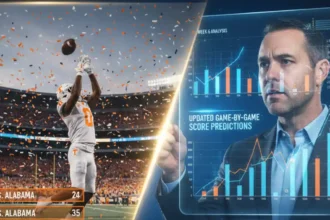Behind on Student Loans? Steps to Avoid Default and Protect Your Credit
Student loan debt is a significant concern for many individuals in the United States. With rising tuition costs and a challenging job market, it’s not uncommon for borrowers to fall behind on their payments. If you find yourself in this situation, understanding the steps to avoid default and protect your credit is crucial. This article outlines actionable strategies to help you manage your student loans effectively.
- Behind on Student Loans? Steps to Avoid Default and Protect Your Credit
- Understanding Student Loan Default
- Steps to Avoid Default
- 1. Stay Informed About Your Loans
- 2. Communicate with Your Loan Servicer
- 3. Explore Repayment Options
- # Federal Loan Repayment Plans
- # Private Loan Options
- 4. Consider Loan Consolidation or Refinancing
- 5. Budget and Financial Planning
- 6. Utilize Resources and Financial Aid
- Protecting Your Credit
- Frequently Asked Questions (FAQs)
- What should I do if I miss a payment?
- How does default affect my credit score?
- Can I negotiate my loan terms?
- What happens if I default on my student loans?
- Are there any forgiveness programs for student loans?
- Conclusion
Understanding Student Loan Default
What is Default?
Defaulting on a student loan typically occurs when a borrower fails to make payments for a certain period, usually 270 days for federal loans. For private loans, the timeframe may vary. Default can lead to severe consequences, including damaged credit scores, wage garnishment, and even legal action. Therefore, it’s essential to recognize the signs of impending default and take proactive measures.
Consequences of Default
The ramifications of defaulting on student loans can be significant. A default can severely impact your credit score, making it difficult to obtain credit cards, mortgages, or car loans. Additionally, the government may take aggressive steps to collect the debt, including garnishing wages and withholding tax refunds. For federal loans, borrowers may lose eligibility for repayment plans, deferments, and even future federal student aid.
Steps to Avoid Default
1. Stay Informed About Your Loans
Understanding the specifics of your student loans is the first step in avoiding default. Keep track of:
- Loan types: Know whether your loans are federal or private. Each type has different repayment options and consequences for default. Federal loans, for instance, often come with more flexible repayment options than private loans.
- Loan servicer: Be aware of who manages your loans. This entity will be your primary point of contact for any questions or changes to your repayment plan.
2. Communicate with Your Loan Servicer
If you anticipate difficulty making a payment, reach out to your loan servicer as soon as possible. They can provide guidance on available options and may offer temporary relief solutions, such as:
- Deferment: This allows you to temporarily pause payments without going into default. For example, deferment may be granted during periods of economic hardship or while you’re enrolled in school.
- Forbearance: This option lets you reduce or halt payments for a specific period. However, interest may continue to accrue during forbearance, which can lead to a larger balance when payments resume.
3. Explore Repayment Options
Both federal and private loans offer various repayment plans that can help make your payments more manageable.
# Federal Loan Repayment Plans
- Standard Repayment Plan: Fixed payments over ten years. This plan is straightforward but may not be affordable for all borrowers.
- Graduated Repayment Plan: Payments start low and increase every two years. This plan can be beneficial for those expecting their income to rise significantly over time.
- Income-Driven Repayment Plans (IDR): Payments are based on your income, which can significantly reduce your monthly obligations. Options include:
– Revised Pay As You Earn (REPAYE)
– Pay As You Earn (PAYE)
– Income-Based Repayment (IBR)
– Income-Contingent Repayment (ICR)
# Private Loan Options
Contact your private loan lender to explore potential repayment plans. Many lenders offer flexible payment options, including interest-only payments or extended terms. It’s crucial to read the fine print, as some options may lead to higher overall costs due to extended repayment periods.
4. Consider Loan Consolidation or Refinancing
If you have multiple student loans, consolidating them into a single loan can simplify payments. This can also lower your interest rate if you refinance to a lower rate. However, be cautious; consolidating federal loans into a private loan can result in losing federal benefits like income-driven repayment plans and forgiveness programs. It’s essential to weigh the pros and cons before making this decision.
5. Budget and Financial Planning
Creating a budget is essential for managing your finances effectively. Track your income and expenses to understand where your money goes. This will help identify areas where you can cut costs and allocate more funds toward your student loan payments. Consider using budgeting apps or spreadsheets to stay organized.
6. Utilize Resources and Financial Aid
There are numerous resources available to help borrowers manage their student loans:
- Federal Student Aid: The U.S. Department of Education provides tools and information to help borrowers understand their loans and repayment options.
- Nonprofit Credit Counseling: Organizations like the National Foundation for Credit Counseling (NFCC) offer free or low-cost services to help individuals create budgets and manage debt.
- State and Local Programs: Some states offer assistance programs for borrowers facing financial hardship. Check with your local education department for resources.
Protecting Your Credit
1. Monitor Your Credit Score
Regularly checking your credit report can help you keep track of changes and identify potential issues. You are entitled to one free credit report per year from each of the three major credit bureaus: Equifax, Experian, and TransUnion. Review these reports for any discrepancies and dispute errors promptly. Many services also provide credit monitoring that alerts you to changes in your score or new accounts opened in your name.
2. Make Payments on Time
Even if you are unable to pay the full amount due, making partial payments can demonstrate your commitment to repayment and positively affect your credit history. Set reminders for due dates to ensure you don’t miss payments. Consider setting up automatic payments to simplify the process.
3. Build a Cushion
If possible, create an emergency fund to cover unexpected expenses. This can prevent you from missing loan payments due to financial setbacks. Aim to save at least three to six months’ worth of living expenses, which can provide a buffer in case of job loss or other emergencies.
Frequently Asked Questions (FAQs)
What should I do if I miss a payment?
If you miss a payment, contact your loan servicer immediately. They can help you understand your options, such as deferment or forbearance, to avoid default. Taking action early is crucial to mitigate any negative impact on your credit.
How does default affect my credit score?
Defaulting on a student loan can lower your credit score significantly, making it harder to secure loans or credit in the future. The impact can last for several years, as defaults remain on credit reports for up to seven years.
Can I negotiate my loan terms?
While federal loans have set terms, private lenders may be open to negotiation. Contact your lender to discuss potential options. You may be able to secure a lower interest rate or a more manageable repayment plan.
What happens if I default on my student loans?
If you default, the lender can take several actions, including wage garnishment, tax refund interception, and legal action. It’s crucial to address the situation before it escalates to default. Seeking help from a financial counselor can be beneficial in navigating the complexities of default.
Are there any forgiveness programs for student loans?
Yes, certain federal student loans may qualify for forgiveness programs, such as Public Service Loan Forgiveness (PSLF) for those working in qualifying public service jobs. Other forgiveness options include Teacher Loan Forgiveness and Income-Driven Repayment forgiveness after 20 or 25 years of qualifying payments.
Conclusion
Falling behind on student loans can be daunting, but proactive measures can help you avoid default and protect your credit. By staying informed, communicating with your loan servicer, exploring repayment options, and maintaining a budget, you can navigate the complexities of student loan repayment successfully. Remember that help is available, and taking action early can mitigate the long-term consequences of default. With the right strategies in place, you can regain control of your finances and work toward a brighter financial future.







